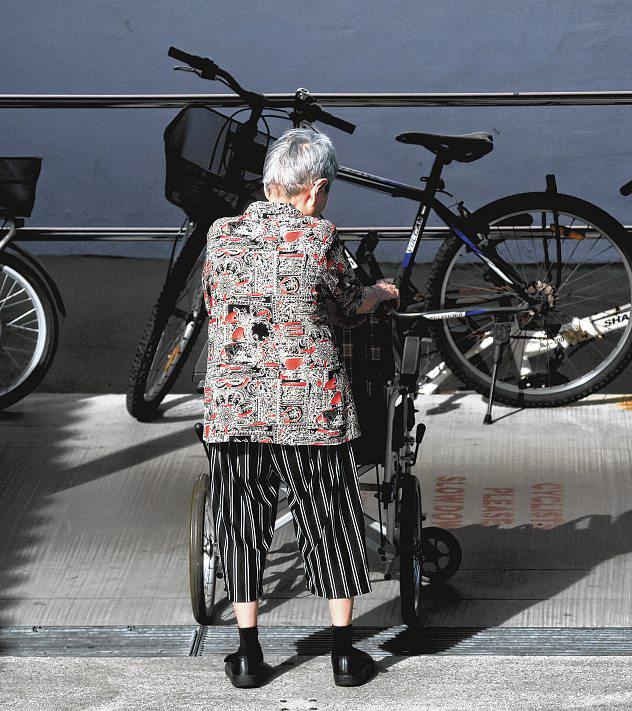Versuchen GOLD - Frei
All you need to know about 2 new HSA-approved Alzheimer's drugs
The Straits Times
|July 28, 2025
Tackling Alzheimer's disease in Singapore received a boost earlier in 2025, when the authorities approved two new drugs for the neurodegenerative disease.

Although these drugs - lecanemab and donanemab - cannot cure or reverse the effects of Alzheimer's, they have been shown to slow the progression of the disease, which accounts for almost 70 per cent of dementia cases worldwide.
Simply Science looks at what these drugs do, how effective they are, as well as the risks and costs.
HOW DO THEY WORK?
The two new drugs are monoclonal antibodies, which are lab-produced proteins that mimic natural antibodies.
They work by targeting and removing beta-amyloids - molecules that accumulate in the frontal cortex and hippocampus of the brain - causing Alzheimer's disease.
Lecanemab, which is marketed as Leqembi, is developed by pharmaceutical firms Eisai, Biogen and BioArctic.
Donanemab, marketed as Lormalzi in Singapore and Kisunla in other countries, is developed by Eli Lilly.
Both are intravenous injections - lecanemab is administered every two weeks over about 1½ years, and donanemab is administered every four weeks over the same period.
HOW EFFECTIVE ARE THEY?
During clinical trials, both drugs demonstrated the ability to slow Alzheimer's disease.
Findings from the clinical trial of lecanemab, published in the New England Journal of Medicine, showed that it slowed decline for people with early Alzheimer's disease by about 27 per cent to 37 per cent.
Meanwhile, results from donanemab's Phase 3 clinical trial, published in the Journal of the American Medical Association, showed that the drug slowed cognitive decline by about 20 per cent to 29 per cent.
Eisai medical director Amitabh Dash said lecanemab differs from existing drugs, which treat symptoms and manage memory or behavioural issues only temporarily.
"It works by clearing these protofibrils and amyloid plaques, which are believed to contribute to the progression of the disease," said Dr Dash.
Diese Geschichte stammt aus der July 28, 2025-Ausgabe von The Straits Times.
Abonnieren Sie Magzter GOLD, um auf Tausende kuratierter Premium-Geschichten und über 9.000 Zeitschriften und Zeitungen zuzugreifen.
Sie sind bereits Abonnent? Anmelden
WEITERE GESCHICHTEN VON The Straits Times
The Straits Times
AI use could make us ‘subcognitive’
AI threatens students’ most basic skills. If they lose their ability to understand what they read, will they lose their ability to think?
4 mins
October 31, 2025
The Straits Times
Clean tech can scale up with state support, blended finance: Panel
Such technologies are on the rise across Asean as countries seek to reduce emissions
4 mins
October 31, 2025
The Straits Times
Nearly 700 more children fall ill in Indonesia after eating free school meals
The Indonesian authorities are investigating food poisoning cases involving nearly 700 children in Yogyakarta province this week, after students ate meals prepared under President Prabowo Subianto’s key free school meal programme, an official said.
1 mins
October 31, 2025
The Straits Times
Lim Boon Heng takes 'ultimate responsibility' on failed Allianz-Income union
He and NTUC Enterprise board admit that the offer could have been managed better
3 mins
October 31, 2025
The Straits Times
VACHEROT MASTERS TOUGH MOMENTS
2025’s surprise package happy with how he handled pressure points in win over Norrie
2 mins
October 31, 2025
The Straits Times
TNP merges with Stomp
Refreshed website aims to better resonate with younger audience, attract new readers
3 mins
October 31, 2025
The Straits Times
Malaysia considers live monitoring of school CCTV footage by police
Malaysia's Home Ministry is considering a proposal to link school CCTV systems to the police to enable real-time monitoring and enhance security.
1 mins
October 31, 2025

The Straits Times
Trump asks Pentagon to immediately resume testing nuclear weapons
He says it is necessary to keep up with rivals; Russia and China criticise move
2 mins
October 31, 2025
The Straits Times
Over 350,000 have registered for QR code system at JB checkpoints
More than 350,000 people have registered for the National Integrated Immigration System (NIISe) to use QR code lanes at the Johor-Singapore border.
1 mins
October 31, 2025
The Straits Times
Don't forget human touch as SG60 exhibitions go digital
I recently attended the SG60 exhibition at the Orchard Library. While I appreciate the initiative to celebrate Singapore's 60 years of progress, I would like to share some sincere feedback and suggestions for improvement.
1 mins
October 31, 2025
Listen
Translate
Change font size

